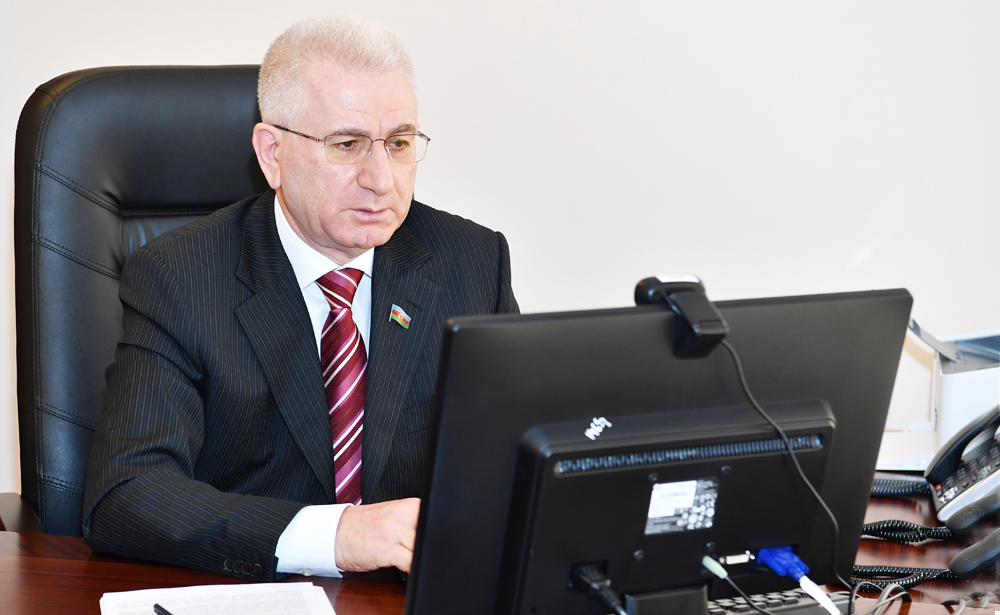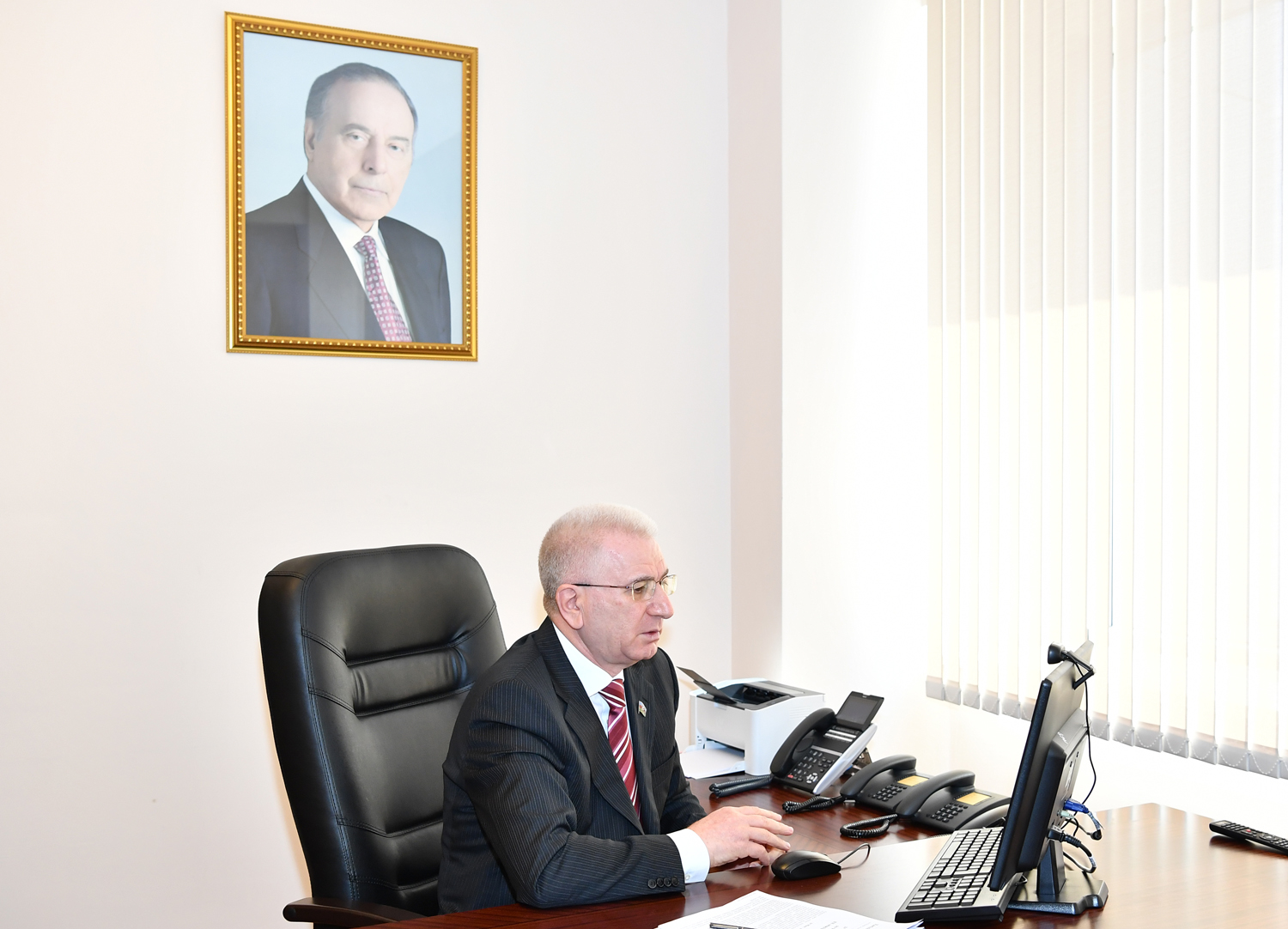The Sciences and Education Committee Held a Meeting

Chairman of the Milli Majlis Committee for Sciences and Education Bakhtiyar Aliyev recalled when opening the committee meeting on 31 March that the victims of the Armenian genocidal policy against the Azerbaijanis were commemorated on that day every year. It is a policy of extermination and ethnic cleansing pursued nowadays as well, according to Mr Aliyev who emphasised its glaring mercilessness demonstrated especially vividly in many instances including the Khojali Genocide that occurred in the lifetimes of many of us. The work done towards having a more thorough legal and political verdict passed on the genocide of the Azerbaijani people began at the urge of the Great Leader Heydar Aliyev who signed the Genocide of the Azerbaijanis Decree on 26 March 1998. Speaking of the efforts, Committee Chairman also mentioned President Ilham Aliyev’s ‘The Centennial of the 1918 Azerbaijani Genocide’ Order.
The Committee members Jeyhun Mammadov and Parvin Karimzade spoke on the subject to draw the meeting participants’ attention to the horrors and scale of the occupation and genocide policy unleashed by Armenia against Azerbaijan.
Then, Mr Aliyev informed the Committee members of the progress achieved by the Working Group tasked to compose the Tertiary Education Bill. The group composition was updated and expanded in September 2020. Then, it had a videoconferencing session at the suggestion and with the participation of Chair of the Milli Majlis Sahiba Gafarova on 22 January 2021. The first draft of the Bill, prepared already, incorporates the recommendations that Mrs Gafarova made at that session as well as since then, according to Mr Aliyev.
Bakhtiyar Aliyev who happens to helm the said Working Group went further to say that the Tertiary Education Bill, which was drafted for the first time, aimed to ensure the tertiary education’s transition to a new level qualitatively in view of the tasks set out in State Programme of Enhancing the International Competitiveness of the Tertiary Education System of the Azerbaijan Republic in 2019-2023 approved by President Ilham Aliyev. The document defines the basic principles of the national tertiary education policy, the tertiary education’s corporate, legal and economic foundations, the rights and obligations of students and teachers, the fundamental stipulations concerning commercial and innovative endeavours in tertiary education and several other matters. The aspects of the international co-operation in this field will receive proper consideration, too, with the appropriate rules due to be developed and incorporated in the Bill.
On the whole, the new Bill will shed light on many matters related to tertiary education. Besides, whilst due regard is given to the international educational innovations and best practices, the authors of the document have taken care not to let out of sight the Azerbaijani education traditions and specifics.
The leader of the Working Group said then that the Bill also held in focus maintaining the competitiveness and sustainable development of the country, harmonising the training of highly qualified personnel with labour market demands and the international classification of occupations, forming a tertiary education system in Azerbaijan that would be more efficient academically, economically and socially and, next, incepting research universities. In addition, considerable attention is given in the document to such matters of public concern as distant education and student loans.
Deputy Chairman of the Committee Musa Gasimli and the MPs Eldar Guliyev and Etibar Aliyev spoke on the subject. They brought up a number of current issues with the education system as it stands saying that it was important that the new Bill would offer a clear-cut and effective mechanism for addressing those issues.
The rest of the Committee members Ulviya Agayeva, Tamam Jafarova, Kamila Aliyeva, Rafael Huseynov, Afat Hasanova, Anar Iskandarov, Mushfig Mammadli, Aghiya Nakhchivanli, Shahin Seyidzade and Fatma Yildirim as well as other officials were taking part in the online meeting of the Milli Majlis Committee for Sciences and Education, too.
The Press and Public Relations Department
The Milli Majlis





